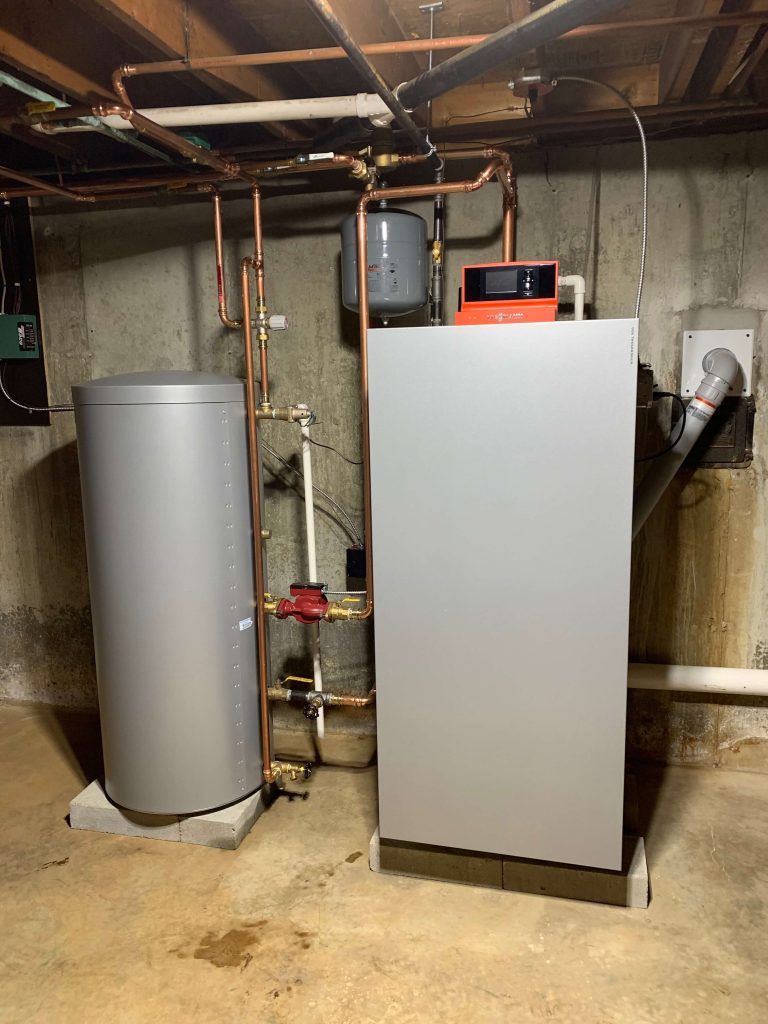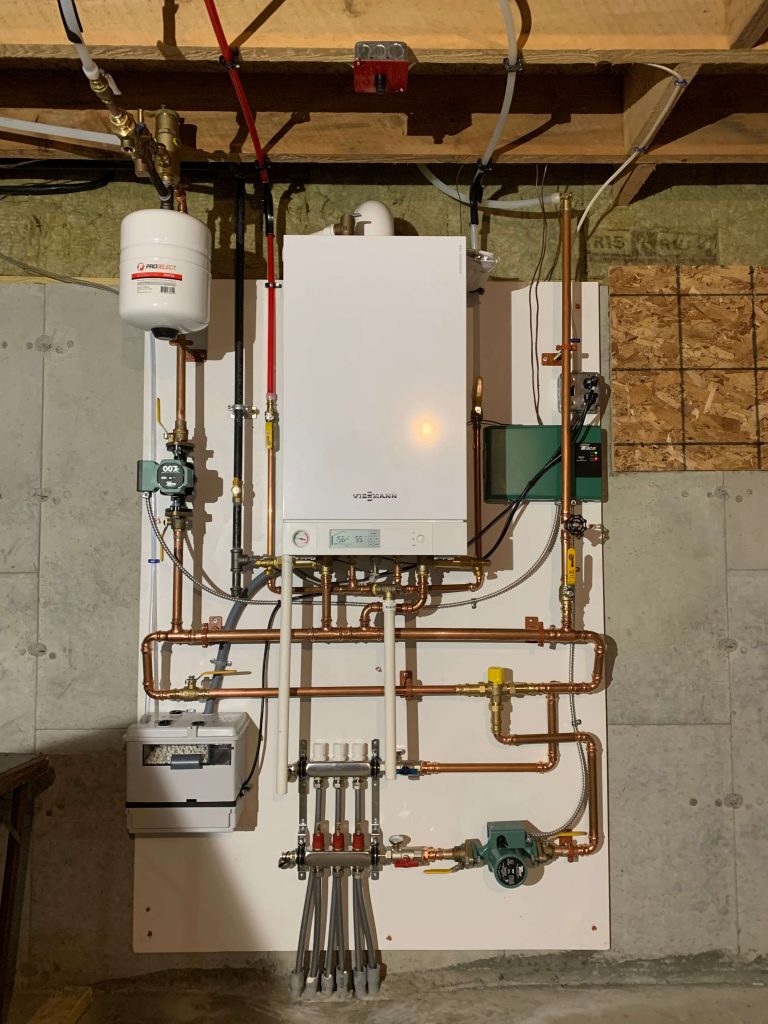What is the Difference Between a Boiler and a Furnace? Advantages & Disadvantages of Both
Often the term “furnace” is used to broadly describe a home’s heating system, and many people confuse furnaces and boilers. It’s understandable – both are heating systems for your home or business. There’s a big difference between the two, however. Let us explain:

What Is the Difference Between a Boiler and a Furnace?
There’s a significant difference between a boiler heating system and a furnace system. A boiler uses hot water (or steam from hot water) pushed through pipes to heat your home. Very differently, a furnace uses warm air pushed through ductwork to heat spaces.
Furnaces
A furnace uses air to generate heat. Furnace heating systems are also commonly referred to as forced-air systems because they force room-temperature air through a heat exchanger. Once heated, the air is then forced into ductwork to distribute heat.
Advantages of Furnaces
- Furnaces can be powered by a variety of sources including oil, electricity, natural gas, propane, solar or geothermal energy.
- They produce heat faster than boilers so your house will heat up faster.
- There are many types of furnace makes and models, making them less expensive initially than boiler systems.
- When a furnace leaks, air escapes ductwork, causing little if any damage.
Disadvantages of Furnaces
- Because blowers distribute heated air, furnaces tend to be one of the noisier heating systems.
- Heated air is not as consistent as heat provided by hot water, so you may experience cold spots or uneven heating in your house.
- Installing the ductwork a furnace requires in a built home can be very destructive to a home’s structure.
- Indoor air quality is significantly impacted by the quality of the furnace filtration system, and replacing filters regularly is imperative to maintaining good indoor air quality.
Boilers
Boilers are large, closed contain systems that use heated water to generate heat through steam or vapor. Also called hydronic or radiant heating, boilers deliver heat throughout the house via pipes that go to registers, radiators or baseboard units.
Advantages of Boilers
- Boilers use less fuel to produce heat making them more energy efficient.
- They have quieter operation than a furnace.
- A boiler does not move air, therefore will not impact indoor air quality by distributing dust, dirt and other contaminants like a furnace does.
- Boilers don’t dry out the air like a furnace.
- Boilers provide consistent heat throughout the house.
Disadvantages of Boilers
- Boilers are more expensive to buy and install than furnaces.
- They take longer to come to temperature when the thermostat is adjusted, meaning they are slower to heat your home.
- When a boiler fails, significant water damage from leaks or faulty pipes can cause a lot of damage.

Energy Efficiency: Boiler vs. Furnace
Heating air requires more energy than heating water; therefore, boilers are more energy efficient than furnaces. While installation of a boiler is more expensive initially than a furnace system, boilers run more efficiently, tend to be sturdier, and have a longer lifespan (if properly maintained) than furnaces leading to cost savings in the long run.
Whether you choose a boiler or a furnace to heat your home depends on several factors including your home’s structure and heating needs. It’s also important to look at other considerations such as repair cost and initial installation to determine which one is best for your home.
Warm Waters is here to help you decide which system is right for you, or to service your current system. Please CONTACT US for all your heating system needs.
